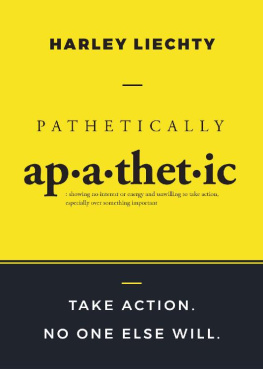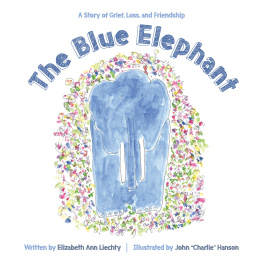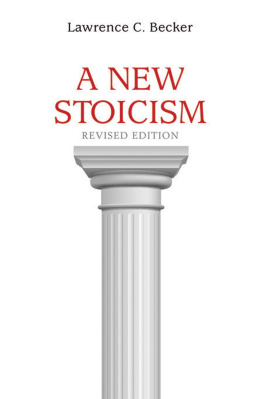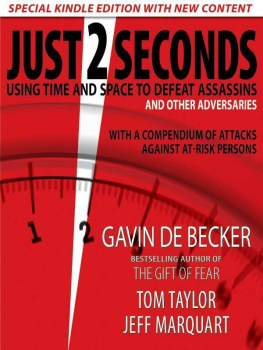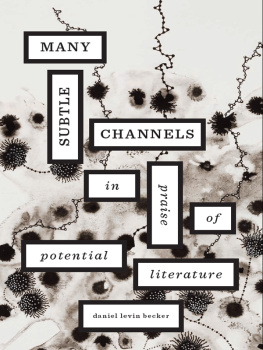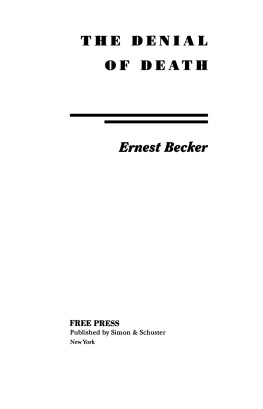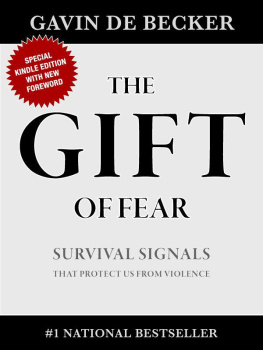THE ERNEST BECKER READER
THE ERNEST BECKER READER
Selected, Edited, and Introduced by
Daniel Liechty
The Ernest Becker Foundation
in association with
The University of Washington Press
Seattle and London
2005 by The Ernest Becker Foundation
Printed in the United States of America
12 11 105 4 3 2
All rights reserved. No part of this publication may be reproduced or transmitted in any form or by any means, electronic or mechanical, including photocopy, recording, or any information storage or retrieval system, without permission in writing from the publisher.
University of Washington Press
PO Box 50096, Seattle, WA 98145
www.washington.edu/uwpress
Library of Congress Cataloging-in-Publication Data
The paper used in this publication is acid-free and recycled from 10 percent postconsumer and at least 50 percent pre-consumer waste. It meets the minimum requirements of American National Standard for Information SciencesPermanence of paper for Printed Library Materials, ANSI Z39.48-1984.
This book is dedicated to
Neil Elgee, MD
public mentor and intellectual midwife
of contemporary Ernest Becker scholarship.
Also dedicated to
Sheldon Solomon, Jeff Greenberg, and Tom Pyszczynski
three who refused to believe it when told
these ideas could never be tested scientifically.
Acknowledgments
There were a number of people who gave me their input as to what material should be included in this Reader. Of those people, I would specifically like to thank William DuBois, Jerry S. Piven, Sheldon Solomon, James B. McCarthy, Kirk J. Schneider, C. Fred Alford, Jeffrey Kauffman, Neil Elgee, Jeff Greenberg, Thomas Duncanson, David R. Loy, and Merlyn Mowrey. Jacqueline Ettinger, our editor at University of Washington Press, and Jeanne Lee, of Illinois State University, were both invaluable to this project. Thanks to Sam Keen for making the full, unedited text of his interview with Ernest Becker available. Four of my graduate students, Laura Jennings Mitchell, Michelle Conrady-Brown, Janelle Sumner, and Leesa Reed, all struggled valiantly through parts of the early manuscript. Much of the work was supported in many ways by The Ernest Becker Foundation. The Ernest Becker Foundation, in turn, was given a substantial anonymous donation specifically for the support of this project, for which I am very grateful.
Special and particular thanks and acknowledgement are due to Robert Pos and Marie Becker-Pos. Without their support of this project, it would never have been completed.
CONTENTS
PREFACE
E RNEST BECKER IS MAINLY KNOWN FOR his last two books, The Denial of Death (1973) and Escape from Evil (1975). It is in these two books that Becker laid out his astonishingly synthetic thesis concerning the psychological, sociological, and cultural consequences of the human awareness of mortality and the implications this awareness carries in human affairs as both a positive and negative motivational factor. For many readers these books, though recognized as profound, were simply too dark and pessimistic about the human condition. To many readers, Becker seemed to offer no way forward, no human project for dealing positively with our death awareness and the repressed anxiety it produces, no programs for taking this into account and yet moving ahead to build liberal, democratic society. Many readers even went so far as to conclude that Beckers vision was anti-humanistic and anti-democratic, or certainly far outside the parameters of any social analysis on which democratic humanists could fruitfully draw.
What is not always recognized or understood in such criticism of Beckers later works is that these works themselves were building on more than a decade of previous studies. In these works, Becker tried in every way he could to support the democratic, humanistic project of our species (what he called the Enlightenment Vision) and to diagnose, criticize, and reanimate that democratic, humanistic project in all the places it had soured into mechanistic scientism, subordination of human values and rights to the demands and expectations of market forces, the idolatrous exaltation of money and consumer materialism on which the system of market economy had come to depend, and the glorification of war and violence that stood as a central prop undergirding the entire project. The thread of continuity running through Beckers earlier work is exactly his unflagging commitment to what he understood as the original, generative Enlightenment vision of democratic humanism, pinpointing and then liberating human beings from the chains of alienation that kept them bound to personal, social, ideological, and political forces that impeded or prevented true human freedom. His principled stand in favor of human freedom in the face of opposition cost him dearly in terms of his academic career, and quite probably in terms of his own physical health as well.
Also often misunderstood by those who read Beckers final works harshly is his general dialectic method of presentation. Beckers habit was to write on a subject in one way, only to turn around in a subsequent work and approach the same subject from a very different angle. In The Denial of Death, for example, Becker wrote of twin motivating factors in human affairs, the denial of death and the denial of life. In his final books, he wrote primarily an explication of the denial of death. It is suggested, however, that the work would not finally be complete until the same topics had been approached from the angle of the denial of life as well. Unfortunately, cancer intervened before Becker could come around and produce the scholarly counterweight himself, although a few of his latest essays, published in scattered locations, strongly hint at the direction this more positive treatment of human possibilities might take.
Although many factors were considered in the selection and editing of Beckers writings for this anthology, a couple of factors weighed most heavily in the process. One of these was simply to make more easily available the most poignant portions of books and essays long out of print and difficult to locate. More importantly, however, it is hoped that these selections will allow the reader to see the threads of continuity between Ernest Beckers earlier and later ideas, sparking interest in the earlier works and offering the foundations for a more balanced interpretation of the later works. Finally, since Becker himself did not live to complete his scholarly project, the door is open wide to that growing group of subsequent researchers, scholars, and intelligent readers, who find in Beckers work that startling recognition of genius, themselves to move this line of interpretation forward. My greatest hope is that the selections offered in this anthology will point readers toward the background material necessary for this venture.
Becker wrote with humor, personality, and with generous citations of the work of others. Space limitations too often forced an editorial decision to retain basic content at the expense of allowing Ernie the man to peek through the text and say hello. I can only ask forbearance from those readers who feel that a particularly delightful passage from this or that writing was not included in this anthology.
Daniel Liechty
Illinois State University
INTRODUCTION
E RNEST BECKER HAS LONG BEEN SOMETHING OF AN ENIGMA in the world of scholarship. His academic career endured for less than 15 years. For all but the final few years of that career, Becker led a rather nomadic academic life, existing on short-term contracts, often not knowing when one year ended where he would be for the coming year. Even as article after article and book after book appeared, he was continually denied contract renewal and any pathway to the academic tenure track. When finally he was offered a position that included some security, it was in a rather contentious and experimental interdisciplinary program that eventually spun apart. In any case, cancer soon intervened to cut Beckers career short at the young age of 49 years. The absorbing question Ernest Becker pursued in all of his research and writing was simply,





